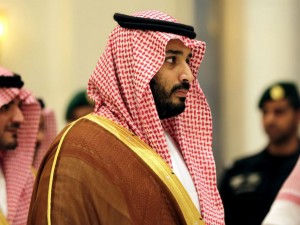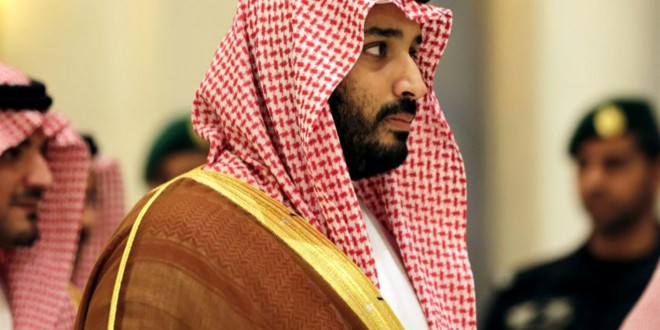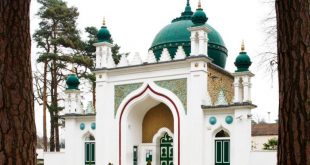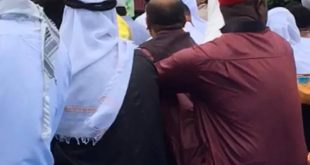INDEPENDENT::
 When Mohammed bin Salman was just 12 he began sitting in on meetings led by his father Salman, the then governor of Saudi ArabiaРђЎs Riyadh Province. Some 17 years later, at 29 and already the worldРђЎs youngest defence minister, he plunged his country into a brutal war in Yemen with no end in sight.
When Mohammed bin Salman was just 12 he began sitting in on meetings led by his father Salman, the then governor of Saudi ArabiaРђЎs Riyadh Province. Some 17 years later, at 29 and already the worldРђЎs youngest defence minister, he plunged his country into a brutal war in Yemen with no end in sight.
Now the kingdom of Saudi Arabia is jousting dangerously with its regional foe Iran, led by a man seemingly in a big hurry to become the Middle EastРђЎs most powerful leader.
Prince Mohammed was still in his early teens when he began trading in shares and property. And when he ran into a scrape or two, his father was able to take care of things. Unlike his older half-brothers, MbS, as he is known, did not go abroad to university, choosing to remain in Riyadh where he attended King Saud University, graduating in law. Associates considered him an earnest young man who neither smoked nor drank and had no interest in partying.
In 2011, his father became deputy Crown Prince and secured the prized Ministry of Defence, with its vast budget and lucrative weapons contracts. MbS, as a private adviser, ran the royal court with a decisive hand after his father was named Crown Prince in 2012.
Every step of the way, Prince Mohammed has been with his father , who took his favoured son with him as he rose in the hierarchy of the House of Saud. Within the Saudi religious and business elite it was well understood that if you wanted to see the father you had to go through the son.
Critics claim he has amassed a vast fortune, but it is power, not money, that drives the prince. When Salman ascended the Saudi throne in January 2015, he was already ailing and relying heavily on his son. Aged 79, the King is reported to be suffering from dementia and able to concentrate for only a few hours in a day. As his fatherРђЎs gatekeeper, MbS is the real power in the kingdom.
That power was dramatically increased in the first few months of SalmanРђЎs rule. Prince Mohammed was appointed Defence Minister; put in charge of Aramco, the national energy company; made the head of a powerful new body, the Council for Economic and Development Affairs with oversight over every ministry; and put in charge of the kingdomРђЎs public investment fund. He was named deputy Crown Prince but ensured ascendancy over his rival Mohammed bin Nayef, the Crown Prince and Interior Minister, by absorbing the latterРђЎs royal court into that of the KingРђЎs.
Impatient with bureaucracy, MbS has been quick to make his mark by demanding that ministries define and deliver key performance indicators on a monthly basis, unheard of in a sclerotic economic system defined by patronage, crony capitalism and corruption. His sudden early morning visits to ministries demanding to see the books is rapidly becoming the stuff of legend, startling sleepy Riyadh into action and capturing the admiration of young Saudis. РђюHe is very popular with the youth. He works hard, he has a plan for economic reform and he is open to them. He understands them,РђЮ enthused one businessman.
That counts, because 70 per cent of the Saudi population is under 30 and youth unemployment is running high, with some estimates putting it at between 20 and 25 per cent.
But the same zeal with which he is pursuing economic reforms has also led Saudi Arabia into a messy war in neighbouring Yemen. Last March, he launched an aerial campaign against rebel Houthi forces that had run the Saudi-installed President Abd Rabbuh Mansur Hadi out of the country. Decades of Saudi caution were thrown to the wind as MbS presided over Operation Decisive Storm.
It must have seemed a very good idea at the time: the young, ambitious son of an aged king leading a war against a rebellion in a troubled southern neighbour. That the rebellion was supported by Iran made the adventure even more attractive. The Saudi military was bristling with new weapons РђЊ billions of dollarsРђЎ worth. MbS had a powerful older rival in the Interior Minister and wanted to prove his mettle both to his rival and his own supporters. The plan was to win a quick, decisive victory to confirm his stature as a military leader, placing him in the same league as his grandfather Ibn Saud, the great warrior king and founder of modern Saudi Arabia.
MbS ignored the fact that the Houthis were a useful buffer against the real threat to the House of Saud, Al-Qaeda in the Arabian Peninsula (AQAP). He seemed, too, to have overlooked that the tenacious Houthis had embarrassed the Saudis in a border war just a few years previously. That was in 2009, when they seized the Saudi Red Sea port of Jizan and left only after a substantial payment of some $70m (┬Б48m).
Thus far Operation Decisive Storm has proved anything but. The war has dragged on for close to a year, causing infinite misery to the people of Yemen. In intense aerial bombardments, much of the countryРђЎs infrastructure has been destroyed while the Houthis remain defiantly in control of the capital Sanaa and most of the north. In the south, AQAP has had an open field. Undeterred, MbS has vowed to carry on, determined to bomb the Houthis to the negotiating table.
РђюHe is quite belligerent,РђЮ says Jason Tuvey, a Middle East economist at Capital Economics. But Tuvey, like many other analysts, has been impressed by Prince MohammedРђЎs grasp of the often maddeningly complex problems that bedevil the kingdomРђЎs economy. РђюOn the economic front he has done very well. He has shifted policy and he should be commended for that,РђЮ Tuvey says.
Where the good in his impetuous nature may come undone is over the growing struggle with Iran for regional hegemony. When MbS announced the formation of a council of 34 Muslim nations in mid-December to combat terrorism, he clearly had Iran in mind. The Iranians have strongly backed the beleaguered Syrian President Bashar al-Assad, both directly and through Hezbollah, a militia trained and armed over the years by Iran. The Saudis are determined to see Assad defeated before any Syrian peace talks commence.
Now, with the Saudis executing the senior Shia cleric Sheikh Nimr al-Nimr, a tit-for-tat battle is escalating. The Iranians allowed the sacking of the Saudi embassy in Tehran, and the Saudis together with other Gulf Co-operation council (GCC) states withdrew their ambassadors in retaliation. The apparent bombing of the Iranian embassy in Sanaa has further ratcheted up tensions.
In a widely circulated letter last summer, enemies within the ruling family decried the arrogance of the young prince, even going so far as to call for his ousting along with his father and Mohammed bin Nayef. But those calls have led nowhere and MbS continues to ride a crest of popular support in Saudi Arabia. The question remains, though, how far his impetuous nature will take him in the conflict with Iran.
It is not outside the realm of possibility that this brilliant, brash young man casting himself in his grandfatherРђЎs mould as a Sunni warrior may be weighing up the options, may be thinking of a military strike against Shia Iran РђЊ a frightening thought in a region already riven by sectarian war.
 Komashisha
Komashisha




